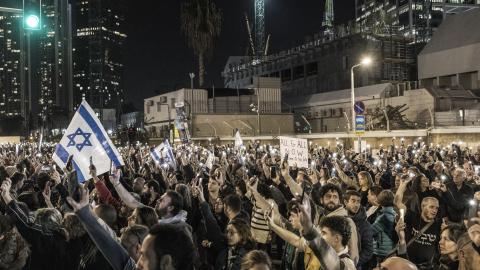Tel Aviv
The Jewish state, and the Zionist movement that sustains it, is emerging from this crisis stronger than before. That’s my conclusion after a week in Israel, traveling to the combat zones in the north and south, touring the Gaza-area kibbutzim that were occupied by Hamas, and meeting with Israelis ranging from senior government officials to survivors of the Oct. 7 attacks struggling to put their lives back together. Israel is more united, its citizens are more determined to fight for their state, and Jews around the world have renewed their commitment to the Zionist cause.
I spoke to Israelis across the political spectrum. From leaders of the pre-Oct. 7 protests against Prime Minister Benjamin Netanyahu’s government to senior officials in the war cabinet, I heard only commitment to supporting the government through the war. Politics isn’t dead in Israel. Protests demanding Mr. Netanyahu’s resignation have resumed, and profound disagreements bubble below the surface. But none of this affects the country’s determination to prosecute the war. Israelis from all political camps are determined to put national security first when the war ends.

















